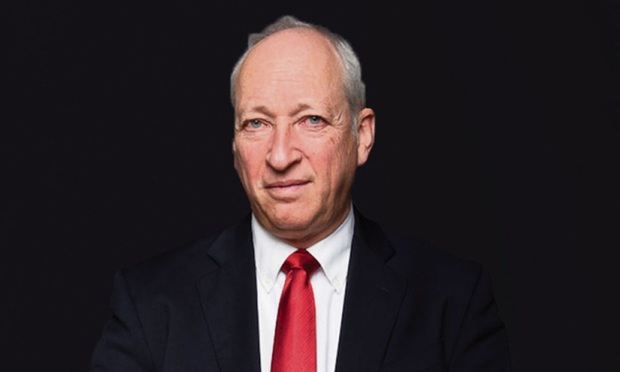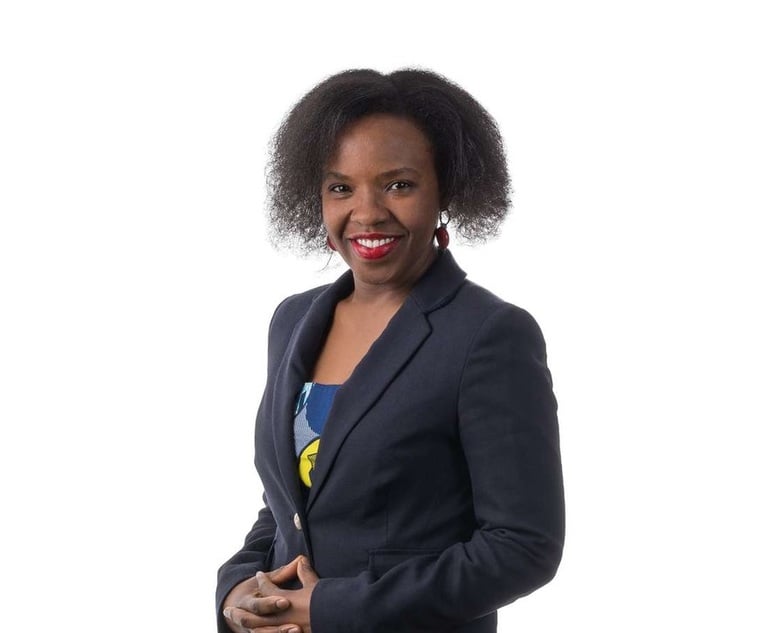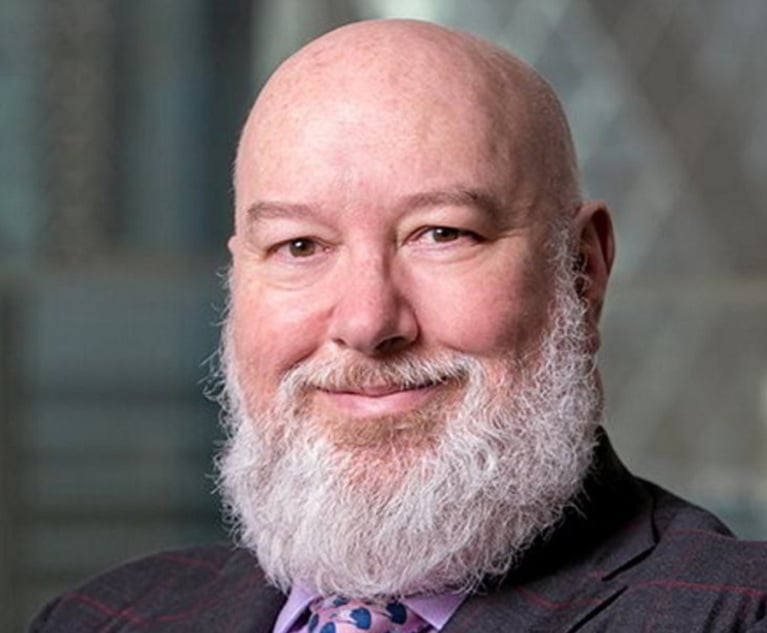1973 was significant in more ways than one. The U.K. joined the European Economic Community, women were for the first time admitted to the London Stock Exchange, and Pink Floyd released the seminal Dark Side of the Moon.
It was in these heady days that a young Nigel Boardman qualified into Slaughter and May’s corporate division. What followed has been a career encompassing five decades in which he has risen to the very top of his field. And in May 2019, he will round it all off, stepping down after 37 years as a partner to become a consultant at the firm.
When it comes to the legal market, or indeed his firm, there are few subjects on which Boardman does not hold a strong position. He speaks authoritatively on topics such as Slaughters’ future, its best friends model, “misguided” global firms looking for U.S. mergers, the rise of the Big Four and, of course, Brexit.
A global lawyer
He fondly recalls his early career, when he honed his craft by observing Slaughters luminaries such as commercial partner Derek Simon – “a black letter lawyer” – finance partner Nick Wilson – a “great mind” and a “strategic thinker” – and one-time corporate head Tim Freshwater, a former president of the Law Society of Hong Kong and chairman of corporate finance for Goldman Sachs Asia who helped him discover the “joie de vivre” in law.
It was in his early work during a secondment to a bank in Manchester that he learned to “get deeply embedded in a transaction”, working with minimal supervision – an experience he describes as “a significant growing-up moment”.
The pull of finance proved so strong that in the mid-70s Boardman briefly left the law to pursue investment banking with Kleinwort Benson (now known as Kleinwort Hambros), working under City stalwart Sir David Clementi – the man who later oversaw the most wide-ranging review of the legal sector in generations, ushering in the Legal Services Act 2007.
But on finding that as a junior banker “there was not much to offer the client”, Boardman returned to Slaughters, where he brought to bear his finance experience, developing significant and lasting relationships with clients including erstwhile manufacturing powerhouse the Guthrie Corporation – now a subsidiary of BBA Aviation.
In the decades that followed, he took roles on some of the most prominent deals in the City, such as successfully defending Marks and Spencer from a takeover attempt by Philip Green, the 2001 merger of mining giants BHP and Billiton, and Thomson’s £9bn combination with Reuters in 2007.
In 2012, Boardman worked alongside preeminent Sullivan & Cromwell partner and current senior chairman Rodgin Cohen to help Standard Chartered reach a $340m settlement after the bank was alleged to have breached US sanctions – one of many examples of Slaughters working in tandem with top US firms.
But while the firm’s informal arrangements with other firms – particularly its Europe-wide best friends model – have invited questions as Brexit draws closer, Boardman argues that “in times of uncertainty, the optimum model is the one that gives the greatest flexibility”.
He explains: “The more rigid your model, the more difficulty you might have if outcomes are counter to your wishes. The best friend model is the most flexible there is. We will come through [Brexit] better than our competitors. We travel more, developing our relationships, and are therefore more globally aware – we need to be.”
A UK firm merges with a US firm at its peril
He adds: “We’ve seen an increased globalisation of law but it won’t be fully globalised until we have much more commonality of legal systems. The law is fundamentally different across different jurisdictions. I couldn’t go and be a successful M&A lawyer in India, because it depends on a regulatory system of laws that I don’t know, and I couldn’t readily supervise somewhere else. Law isn’t like management consultancy, or medicine, or banking. Law is not an internationally portable skill.”
While Slaughters has catered to clients’ US needs by leaning on transatlantic relationships with Wall Street firms such as Sullivan, Paul Weiss Rifkind Wharton & Garrison and Wachtell Lipton Rosen & Katz, many UK competitors are continuing to pursue transatlantic mergers, an approach Boardman remains unconvinced by.
“A UK firm merges with a US firm at its peril,” warns Boardman. “No UK firm has really broken the US market, despite spending an awful lot of money. The US firms break into the UK market on the back of US business here. They get a base-load on which to build overseas, which the UK firms don’t have.
“The US is almost a quarter of the world’s GDP, so if you’re a US law firm, you can go abroad and continue to do work for clients who want to do business in the US. But the UK accounts for a small fraction of the world’s GDP. So even though English law is used significantly internationally, that doesn’t mean our clients are going to be dominating in international markets.”
We will come through Brexit better than our competitors
He speaks in similar terms about the hunger of firms to set up multiple international offices: “A senior partner I spoke to said that having an international network increases costs, increases conflicts, makes it harder to keep a cohesive culture, and cross-referred business is low.”
On the much-heralded ‘Big Four threat’, Boardman is equally stoic.
“It’s not a short- to medium-term concern,” he says. “They’ve got their own issues, including the Financial Reporting Council review into whether they have the right disciplinary process, and the structure of the industry is of concern, with only four companies able to do that kind of work – I think they face a regulatory threat. And most sophisticated clients would like to receive separate legal and accounting advice.”
What is more important than the Big Four, thinks Boardman, is the lawyer’s reputation as a trusted adviser, which he suggests is under threat given the proliferation of billing targets. He outlines the challenge of “getting the balance right between professionalism and being big businesses”.
“As soon as you introduce billing targets, monetary targets, hourly targets, you do put an adviser under pressure to become a salesman rather than an adviser. That puts the professionalism of the lawyer into jeopardy.
“You can have targets and be professional. But it is a pressure. Billable hours is relatively modern, and came over with the American banks in the 1980s,” he says.
“Around 1980, we had a debate about it, and it was decided we would do what the customer wants, and do that in a sensible way. I think clients would like to move away from the billable hours model, but it’s difficult to find anything apart from relying on trust which replaces it. I do a lot of work not on an hourly rate, and if you know a client well, it’s not difficult to do in the context of a long-term relationship. But the billable hour has become a mainstay.”
Previously unheard-of external recruitment is also becoming more common at Slaughters, including this year’s hires of Wynne Mok and Sir David Green, and Boardman suggests there may be more to come: “If we can enhance the client service, we will do so. But we have a very strong internal bench.”
Clients would like to move away from the billable hours model
Whatever shape the legal landscape takes in the coming years, Boardman is confident he is leaving the partnership in more than capable hands, citing corporate head Andy Ryde, M&A head Roland Turnhill and private equity head Jeff Twentyman as his obvious successors.
As a part-time consultant, Boardman is set to dedicate his energies to new ambassadorial duties, promoting Slaughters’ interests internationally and strengthening ties with associated firms and clients in Australia, Singapore and, in particular, North America, while he will also replace Andrew Balfour as Slaughters’ Africa group chairman.
He will continue his work as a non-executive board member at the Department for Business, Energy and Industrial Strategy, as well as continuing his extracurricular work with the British Museum and Save the Children, stressing: “You should give back if you’ve been lucky.”
NOT FOR REPRINT
© 2024 ALM Global, LLC, All Rights Reserved. Request academic re-use from www.copyright.com. All other uses, submit a request to [email protected]. For more information visit Asset & Logo Licensing.
NOT FOR REPRINT
© 2024 ALM Global, LLC, All Rights Reserved. Request academic re-use from www.copyright.com. All other uses, submit a request to [email protected]. For more information visit Asset & Logo Licensing.









